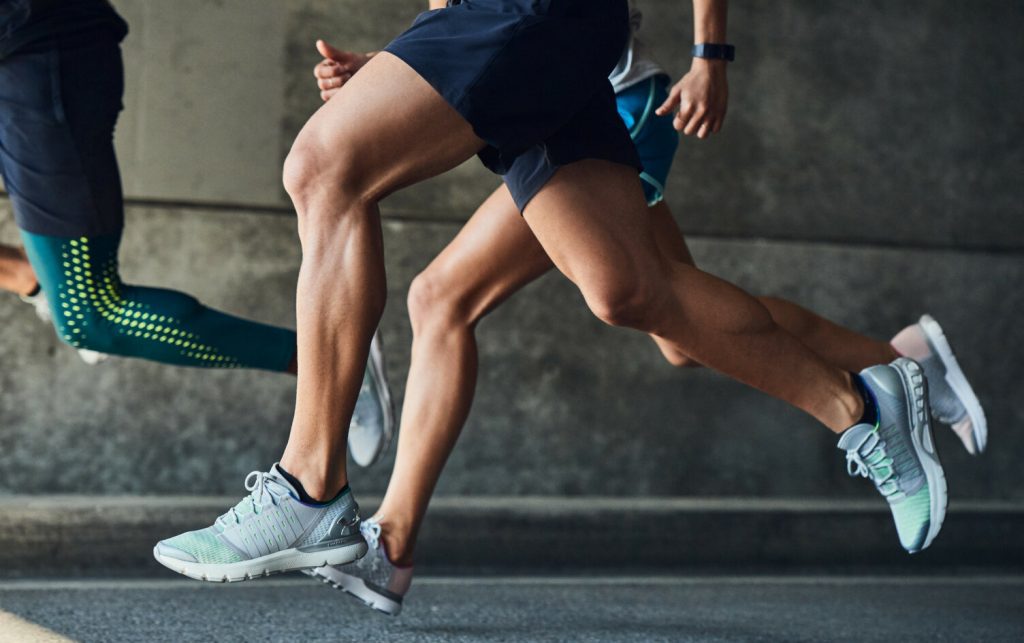
Kneecap Pain 101: Useful Guide to Patellofemoral Pain Syndrome (PFPS)
What is Kneecap pain or Patellofemoral Pain Syndrome (PFPS)?
Patellofemoral Pain Syndrome (PFPS), or “Kneecap pain”, is a common musculoskeletal condition seen in physiotherapy clinics.
PFPS is suggested to affect around 22% of the general population, occurring more commonly in females, athletes and children. It is described as a gradual onset of pain around or behind the patella (kneecap), caused by activities that overload the kneecap joint where it is attached to your leg, such as running, jumping and hopping. It usually presents as a dull, aching pain, while less common symptoms may include pain after sitting for long periods, swelling and clicking/cracking of the kneecap.
PFPS can be the result of a lot of factors, however, it generally occurs due to increased strain on the patellofemoral joint – where your patella (kneecap) and femur (thigh bone) meet at the front of your knee – or from starting activities you may not be used to. This can then lead to overuse, or change the way the knee cap moves (e.g. using poor technique), incorrect training loads, or muscle weakness and imbalances. For many patients, it can resolve by simply changing how you perform certain activities, or hip and knee strengthening exercises. However, in some cases, it may linger and a more intensive rehabilitation approach is required.
Assessment
On an initial assessment, a physiotherapist will firstly ask you about your symptoms, medical history, and lifestyle factors (e.g. hobbies, activities, sports) to obtain a detailed and clear understanding of your condition. They will then perform a thorough assessment, which may include:
- Feeling the knee to check for any tenderness or swelling
- Examining the knee range of movement to see if there are any restrictions
- Assessing muscle strength, endurance and control
- Examining how you perform certain activities, such as walking, running, squatting, stairs, or jumping, to observe for any alignment issues.
Treatment
Based on the assessment findings, the physiotherapist will create an individually tailored treatment plan to best support you through your rehabilitation journey. Some key factors may include:
- Phase 1 (0-4 weeks):
- Releasing of the soft tissue (muscles/tendons/ligaments etc) to reduce any restrictions and keep your kneecap in the best position.
- Correcting the way your knee and leg moves with certain tasks and functional activities (e.g. running, squatting, stairs).
- Starting you on a hip and knee strengthening program which evidence shows can be really helpful.
- Possibly trialling some knee taping and seeing if orthotics may help.
- Advice and education regarding modifying some activities, and managing the strain on the kneecap. In this phase, it is recommended to limit or reduce aggravating activities such as deep squats, sustained kneeling/squatting and high-impact sports (e.g. running, cycling).
- Goal setting.
- Phase 2 (4-8 weeks):
- Progressing the hip and knee strengthening program.
- Further correcting inappropriate movement issues through the whole leg.
- Gradually returning to activities. This may include a paced walking or jogging program.
- Continuation of Phase 1 treatment elements as required.
- Phase 3 (8-12 weeks):
- Progression of hip and knee strengthening program to introduce more advanced and challenging dynamic strengthening exercises.
- Gradual return to full work, sport and activities.
Prognosis
Most patients will start to notice improvements in pain and function within the first 2-4 weeks, with a gradual return to work, sport and activities within 12 weeks. However, this time can vary depending on the length/severity of your symptoms, compliance with treatment, and psychosocial contributors that your physio can advise and discuss with you.
Remember, treating kneecap pain is a team effort, and our physiotherapists will endeavour to work collaboratively and support you throughout your rehabilitation journey.
If you need help with kneecap pain or immobility to get you moving again, or need a tailored exercise program, book in for your treatment with one of our physios or exercise physiologists via 1300 012 273 or head to our website and book a session at your nearest clinic.
